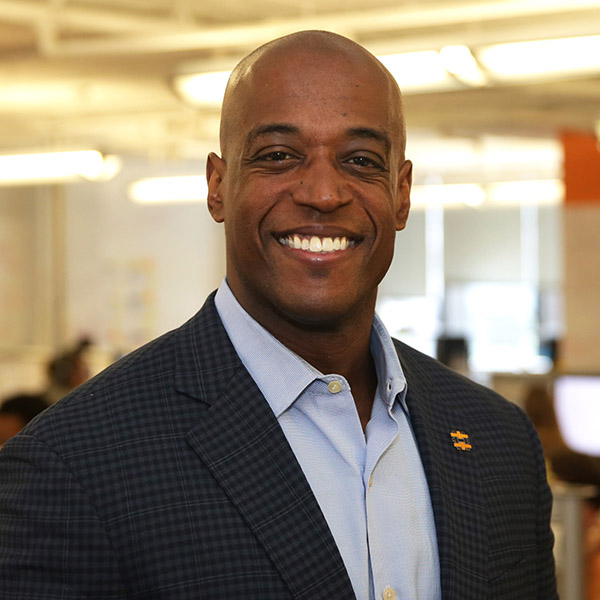When the Dean of Harvard Business School, Nithin Nohria, gave his inaugural interview with the school’snewspaper The Harbus in September 2010, he discussed the important role business plays in society.
“My father was CEO of Crompton Greaves in India. I saw the impact business could have in transforming communities through better infrastructure and creating employment opportunities,” he said.
Dean Nohria’s views are more important than ever, and the current COVID-19 pandemic has put business to the ultimate test.
As the U.S. prepares for what will be many weeks of social distancing, teleworking and drastically changing daily operations, it is critical that business plays a leading role in navigating these turbulent waters both during and after the threat.
Grande Americano, Leave Extra Room for Employee Well-Being
Given the rise of mental health awareness among U.S. companies, it is important for employers to find accessible solutions to support their employees both during this crises as well as when a sense of normalcy returns. We need look no further than a ubiquitous coffee company to find the perfect blend.
Starbucks adopted a novel approach to addressing employee mental wellness, according to Fast Company. Starbucks employees, and their family members, have access to 20 free annual therapy sessions through mental health provider Lyra Health. Launching on April 6th, the timing of this employee benefit could not be better given the impact of the pandemic on society.
Starbucks employees can schedule appointments with mental health professionals conveniently and quickly via a smartphone app. Employees even have the option to conduct sessions online, further diversifying the delivery method of this important benefit.
Fresh Food, How Sweet It Is
Sweetgreen is expanding its Outpost concept to health care workers. The fast-casual chain is connecting hospitals to its fresh food free of charge in the various cities it serves. World-renowned chef Jose Andres has once again mobilized his World Central Kitchen to not only feed emergency responders but also feed students no longer able to eat at shuttered schools as well as the elderly unable to leave their homes.
Many restaurants across the country have successfully shifted from dine-in concepts to curbside pick-up operations. One such restaurant in Washington, D.C., i ricchi, has created a food club allowing residents to not only schedule pick-ups each day of the week but also to prepay food for others in need (the recently unemployed, emergency responders, frontline workers, etc).
Providing a Much-Needed Assist
Bauer, a manufacturer of hockey equipment for professional and amateur athletes, has pivoted from making helmet visors for players to face shields for medical professionals. According to The Washington Post, the company has received over 1 million orders for these shields.
While Bauer is operating its production facilities at maximum capacity, the firm cannot meet the current backlog, so it has provided design/manufacturing instructions to other companies in an effort to encourage increased production capacity.
The Washington Post also reported that Fanatics, a maker of sports apparel, has also redesigned its assembly line to produce more protective face shields.
There Is Such a Thing as a Free Ride
Hertz is making transportation more accessible to those on the front lines. According to its website, the car rental behemoth is offering health care workers in New York City a free, month-long rental throughout the month of April.
Lessons Learned Upon a Return to Normalcy
Similar to the way U.S. citizens banded together in the aftermath of 9/11, so too shall this nation become stronger post-pandemic. This resiliency is especially important given that future communicable diseases/pandemics are likely to come.
If history is any guide, SARS, MERS, Avian Flu, H1N1 and COVID-19 are the forefathers of maladies on the horizon. Risk managers are the “center of excellence” within an enterprise risk management framework, and it is incumbent upon them to remain proactive and prepared.
While industrial giants such as Ford, GE, 3M, Tesla, Airbus and Dyson have redesigned their assembly lines to produce much-needed ventilators for hospitals combating the pandemic, risk managers at these organizations must determine how they can continue their important work in future years.
One idea is for these firms to strategically stockpile ventilators for free in their plants around the globe, ready to absorb surge capacity at a moment’s notice. Similar to how the Climate Clean Air Coalition has formed a partnership of businesses, civic groups and governments committed to improving the global climate, companies producing ventilators can form a similar partnership under the oversight of a governing body like The World Health Organization.
This resilient supply chain can save lives and lessen the impact of future pandemics. The same thought process can be used for distilleries across the nation that have converted some of their operations from making alcohol to making hand sanitizer for hospitals in the region.
Bauer has created the perfect blueprint for how companies, including rivals, can work together and share information to meet surge capacity during the next pandemic.
Now that the U.S. is witnessing the impact of mental health on frontline workers, risk managers should consult with HR to understand how they can better address their employees’ mental health needs.
Starbucks is on the right track, by taking care of their employees now. They are creating a more resilient organization and building goodwill, which may lead to a reduction in employee turnover, improved well-being/mental health and increased productivity.
By observing Dean Nohria’s views on business, risk managers can position themselves at the leading edge of organizations that create resilient communities outlasting any future crises.


